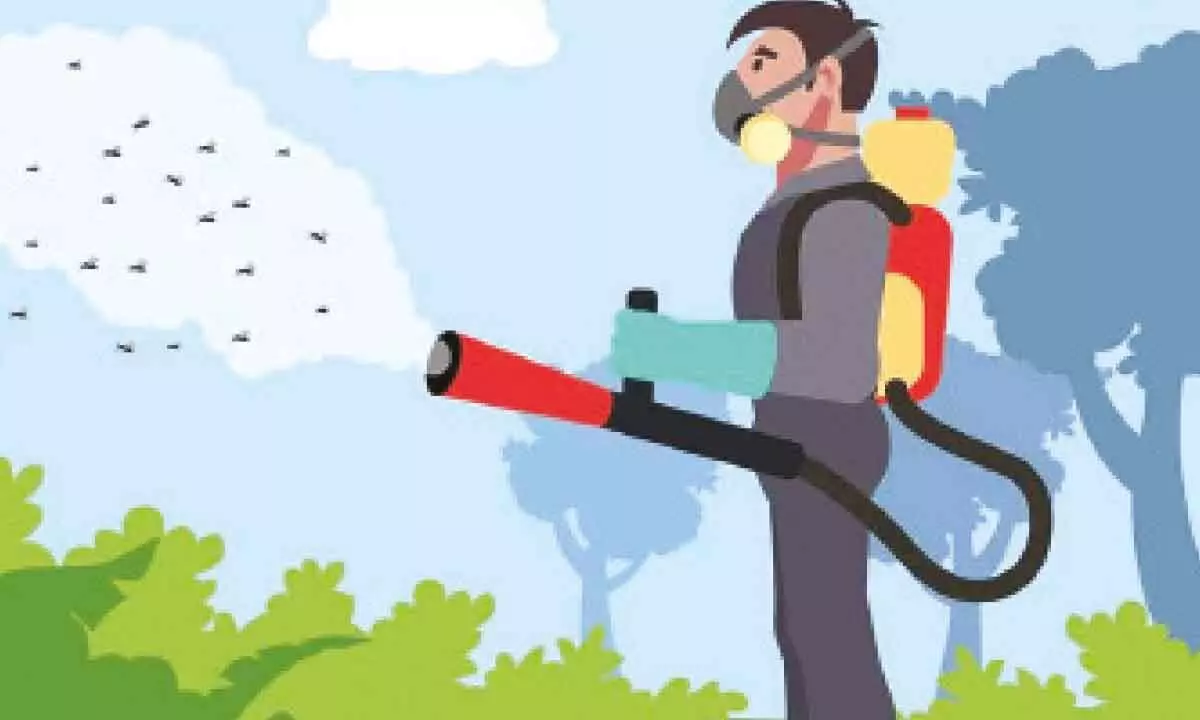Hyderabad: Mosquito menace stings city as breeding grounds increase

Residents say the mosquito population has shown a significant rise after the frequency of fogging activity in several areas has been reduced by civic authorities
Hyderabad: Following rains, there has been an increase in mosquito menace in parts of the city, especially in the areas located near water bodies and open nalas. There has been an increase in the mosquitoes due to the water stagnation, sewage overflow and stench emanating from the water bodies.
The unusual spike in mosquitoes’ population for the past few weeks has left the city residents in trouble, giving them sleepless nights. Due to change in climate and rains, mosquitoes have increased at an alarming rate. Despite tall claims of a massive campaign being undertaken to contain the mosquito menace in the city, there is no respite for citizens. Following the recent rains, the residential areas are again witnessing a significant rise in mosquito population.
Residents say the problem has turned acute after the frequency of fogging activity in several areas has been reduced by civic authorities in the past two months. “It has become impossible to keep windows or doors open for even a minute. We are forced to use mosquito repellents which are causing respiratory problems in children and elderly people,” said Mohammed Nayeemuddin, a resident of Samtha Colony in Tolichowki.
The citizens alleged that various civic works are pending and sewage waters getting stagnated during rains, and people are facing menace and heightened risk of vector borne diseases including dengue and malaria. Some of the areas which are considered hotspots are Jubilee Hills, Alwal, Mehdipatnam, Charminar, Chandrayangutta, Malakpet and Kukatpally circles of the GHMC.
Residents across the city, including those staying in prime localities like Banjara Hills, Madhapur, Hitech City, Serilingampally and Marredpally innumerable complaints poured over the menace. Also, in Tarnaka, Nacharam, Amberpet, Kapra and Old Bowenpally were among the worst affected.
Several residential colonies established around the Lakes including Langar Houz, Shah Hatim, Alwal Lake, Kapra, Safilguda among others turned breeding grounds for mosquitoes.
Moreover, the areas at Musi riverbank are also severely affected. “Those who live near nalas, Musi river and water bodies are at high risk. Moreover, the water which gets accumulated at garbage points could turn into breeding grounds. School-going children are already suffering from fever in many places and if the GHMC ignores sanitation, there is risk of dengue and malaria spread,” said Mohammed Ahmed, a resident of Old City.
The officer at the entomology department said complaints have been pouring in and GHMC has been addressing them on a priority basis.
Meanwhile, to curb the spread of waterborne diseases, GHMC Commissioner Amrapali Kata instructed them to focus on proper sanitation. She instructed the officials to ensure that the city’s streets were swept regularly and kept clean. “The special awareness drive and health seminar on mosquito prevention was taken up among residents,” said Chief Entomologist Dr Rambabu.















